You know the reason I love Lisbon? It’s the one lifestyle city with which I found myself absolutely enamored. A lifestyle city is known for its relaxed atmosphere. It’s a city where one comes to live rather than to see, run, and exhaust themselves. Every person who visits Lisbon during their trip to Portugal can find their own intimate piece of it, a piece they hold completely to themselves without sharing with a thwart of attention-starved, selfie-taking, floppy-hat-wearing tourists. Lisbon is one of the only places where you can have a smoldering, passionate, and intimate love affair with a city, one that is private and all your own.
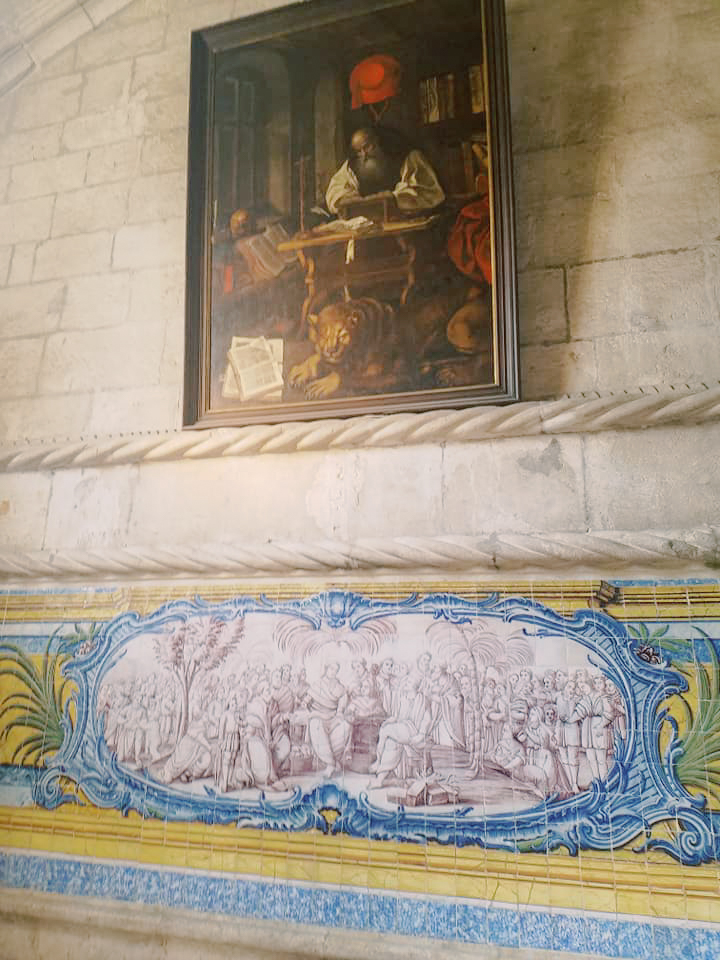
I remember sitting in a very small bar in the Bairro Alto section of the city—one bar out of what felt like hundreds. This one was a Mexican-owned place where my husband, four locals, two Europeans, and one bartender were the only guests inside. My eyes felt heavy and smoldering from just enough wine, my movements languid, yet my speech with the bartender saw both English and Spanish flowing freely and uninhibited. My smoky eye make-up was undoubtedly making its way down my face from the scorcher of the day. The heat from the day’s sun remained on my tanned skin, and I felt warm.
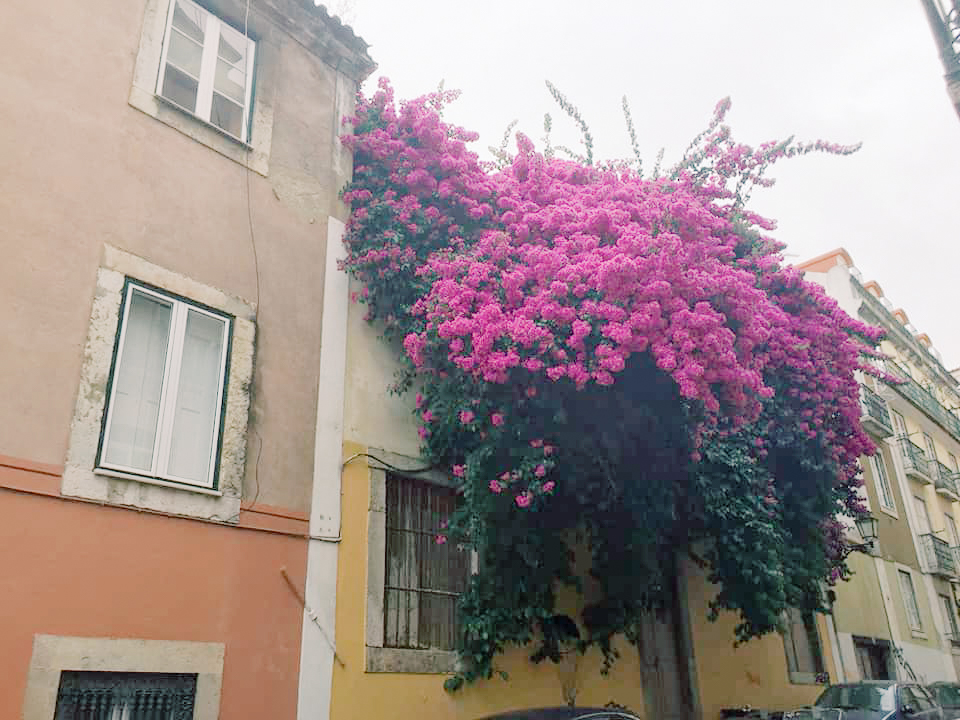
I found myself buzzed, unjustly well fed, among local people, and happy. God, was I happy! During my 12-hour layover to passionate Lisbon, there was no hurrying, nor list checking, nor walking quickly as though a motor was in my back. Instead, I enjoyed moments like this, in this Mexican bar, where I stumbled across gem after gem and fell in love effortlessly with each dimly lit enclave I visited.
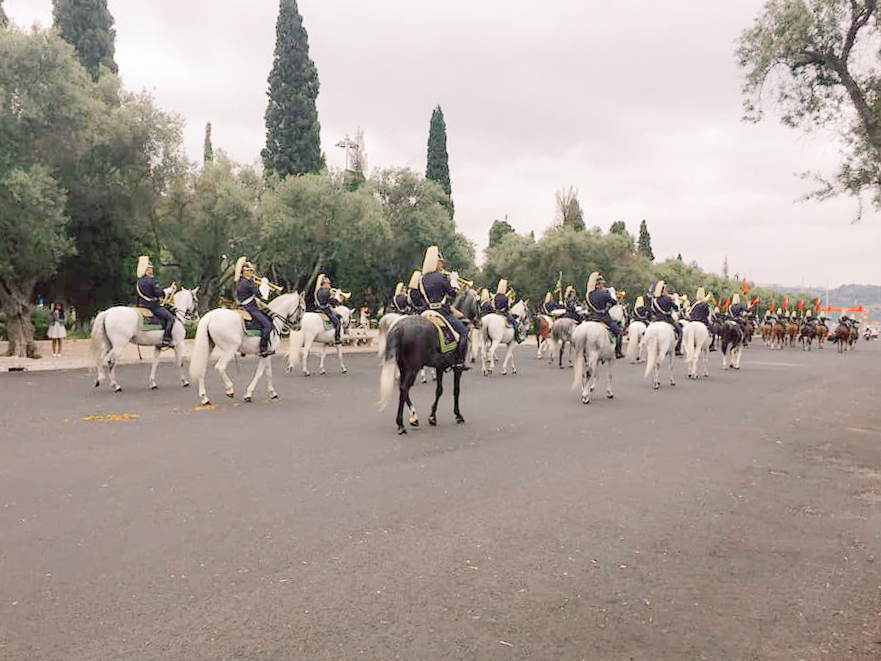
Like most affairs of the heart, my affair with Lisbon was short yet memorable. It left me swearing that I wouldn’t return here again, no matter how enjoyable, because there is simply too much more of the world to see. However, I still often think of Lisbon and allow myself to recall each and every feeling it kindled inside me in such a short time. Vacationing in Europe can prove formidable, but Lisbon is a city that makes it easy to relax and let go.
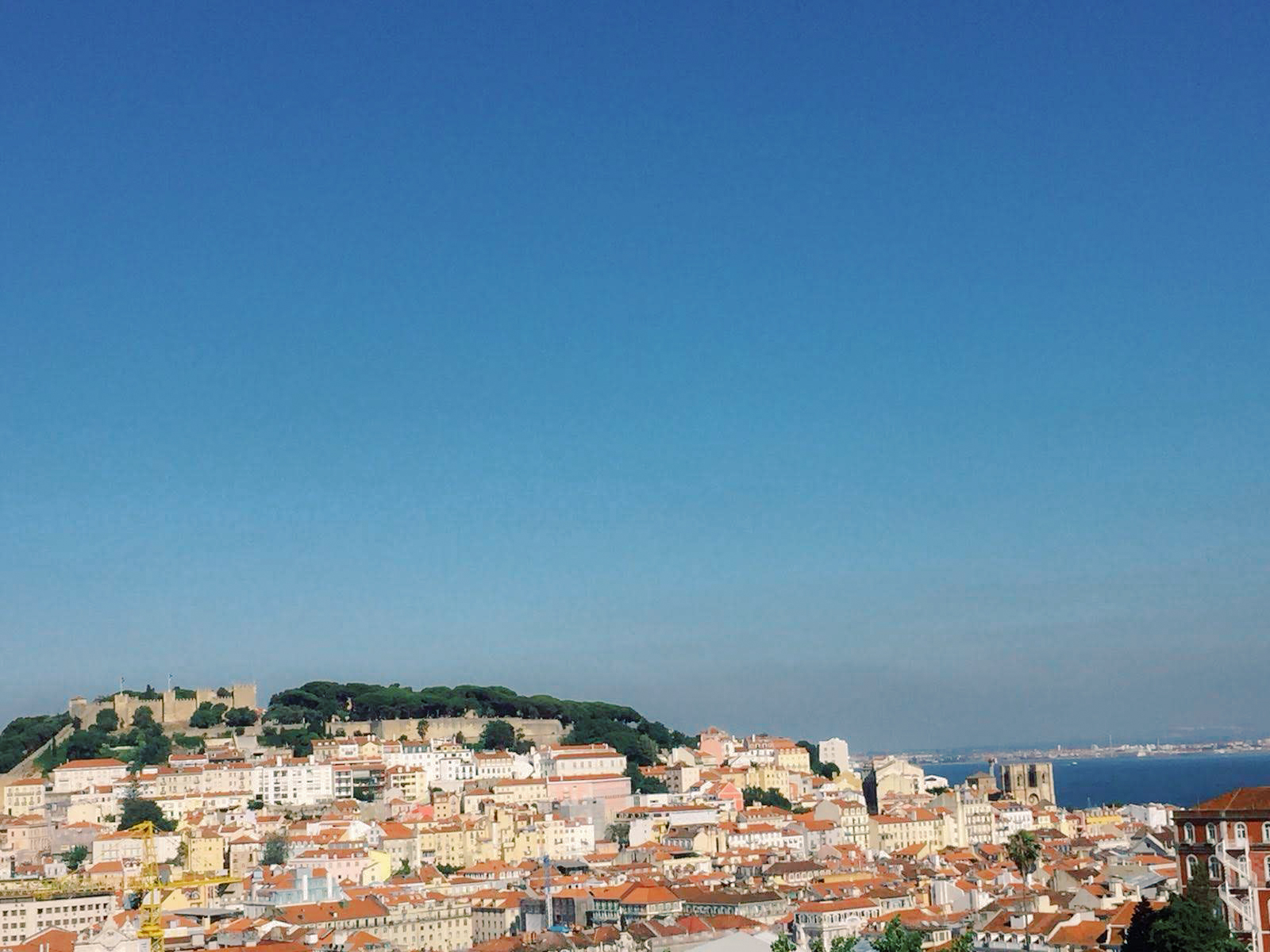
Pastel de Nata.
The hill I was willing to die on during this short trip to Lisbon was visiting Confeitaria de Belem. Beyond this, I refused to let the tourist trail suck me in. However, for a taste of pastel de nata, I would make the exception. If Instragram could be trusted, this experience would surely be worth the stress of the masses. Despite seeing the madness of the crowds at the cafe, I was determined to indulge in this famous pastry from Portugal.
After being punched in the back several times by zealous visitors, a sinking feeling came over me. What if the experience didn’t make up for the abuse I suffered during the wait? One can only sustain so much throttling from Europe’s version of “Karens” without becoming despondent. However, the pastéis de nata proved nothing short of a religious experience—and not because holy rollers originally made them.
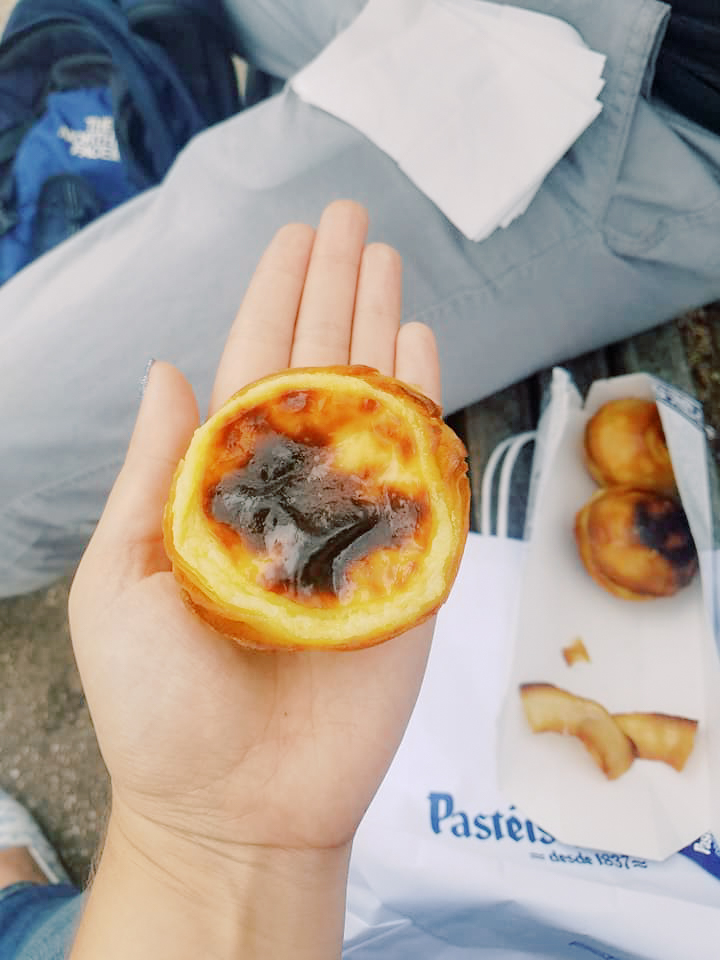
Prior to my trip, I spent weeks stalking the Portuguese egg custard tarts on social media. Then I endured pushing and shoving in line while I waited my turn to try them. And I would gladly do it all again. They made the perfect breakfast. I still do my best impression of Pavlov’s dogs when I think of the flaky crust filled with a sweet, pudding-like texture with a perfectly burned, crispy skin on top.
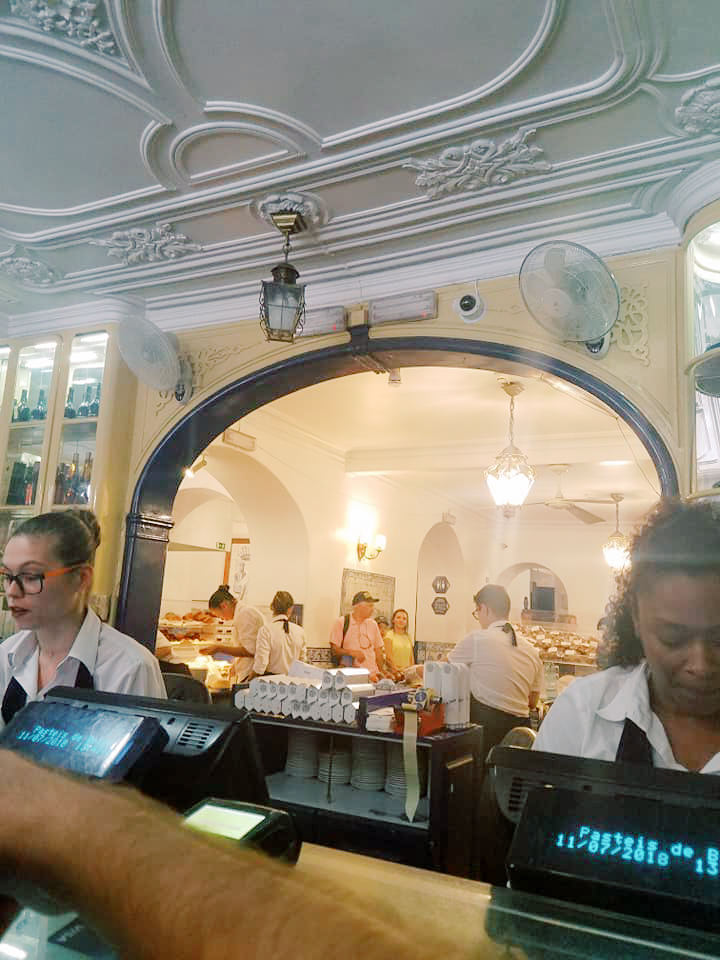
After a long, stressful day at my actual job, I am smiling like a fool and salivating as I write this. (Let that image sink into your mind—super creepy, I know.) The cinnamon and sugar sprinkled on top of the custard added another flavor dimension entirely, but I’ll be honest, they were better on their own. I remember sitting in a park as we ate them and watching a group of school children enjoy the playground. It sounds ridiculous, but I always forget that, as much as countries around the world are very different, they are also very similar.
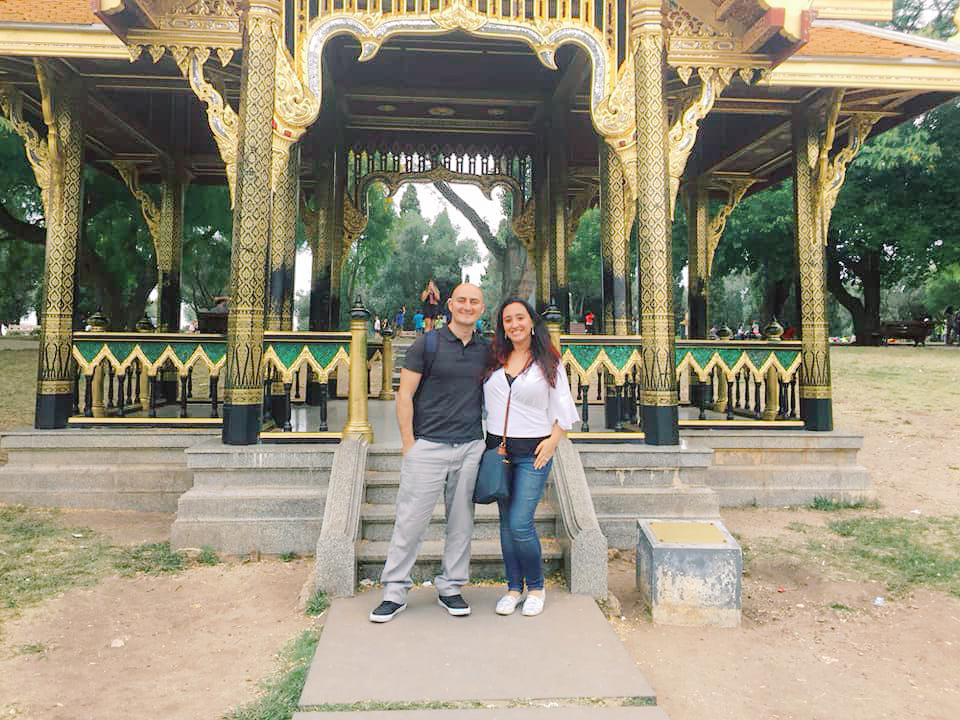
Seeing something as ordinary as children at summer camp always surprises me. I couldn’t help but juxtapose our experiences. I was a stranger in a far-off land where things were new, shiny, and different. For these children, Lisbon was their home, their backyard to climb and play in. We were both explorers in that moment, albeit in very different manners. The children delved into boundless imaginary worlds on their playground equipment; I dove recklessly into my egg tarts.
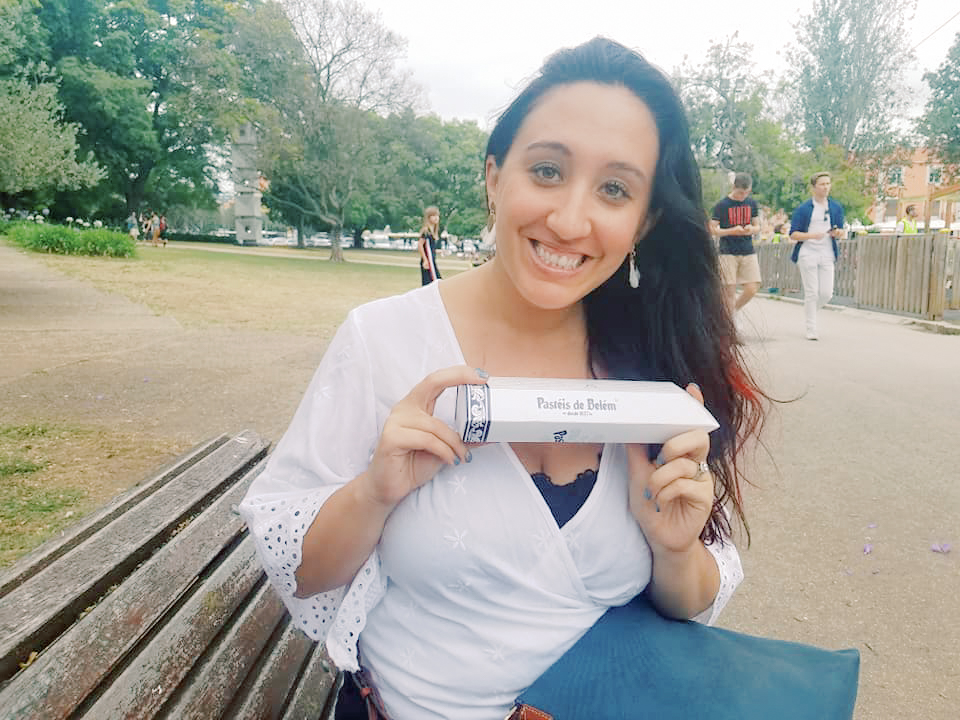
Playing Pretend at Jerónimos Monastery.
Confession: I sometimes imagine I am a historical character from a TV show given the right environment. I take my role way too far, though. (Method acting.) I’m a HUGE fan of historical television shows. Right before visiting Lisbon, I binge-watched The Tudors on Netflix. I couldn’t help but notice that many of the hallways in the Jerónimos Monastery looked like the hallways of William of Orange’s palace.
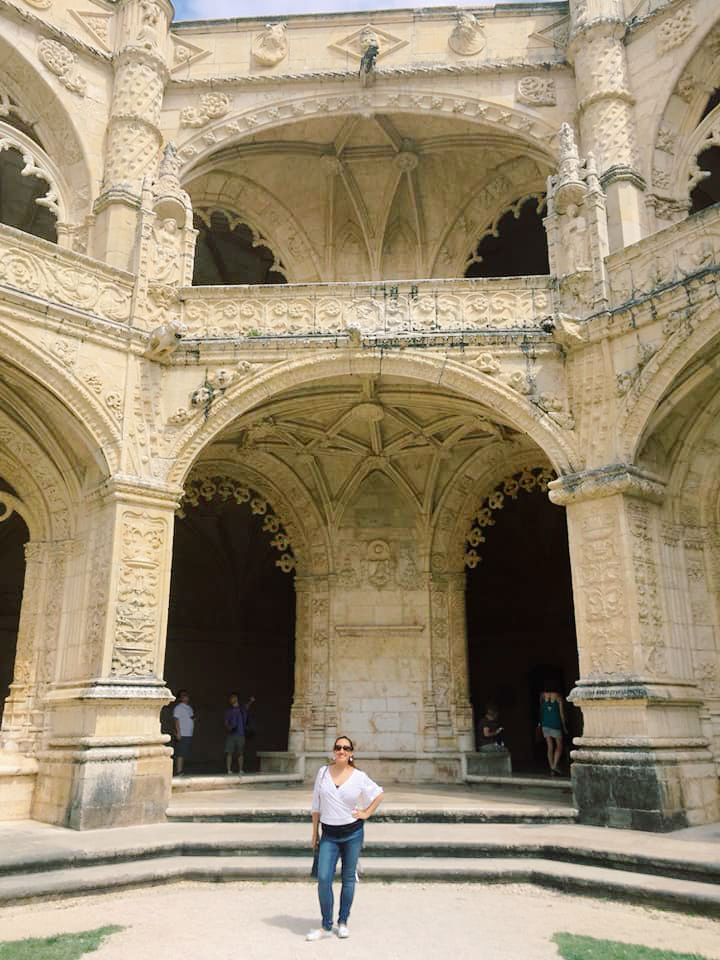
In keeping with my fictional and ambiguous historical character that I was playing for an audience of no one, I stalked around with my back straight and shoes clicking, trying to look very important, as if I had a message to deliver. I made sure to have a smug smirk on my face as I patrolled the hallways. I will often walk into doorways acting winded, as if I ran all the way to this point with an important message.
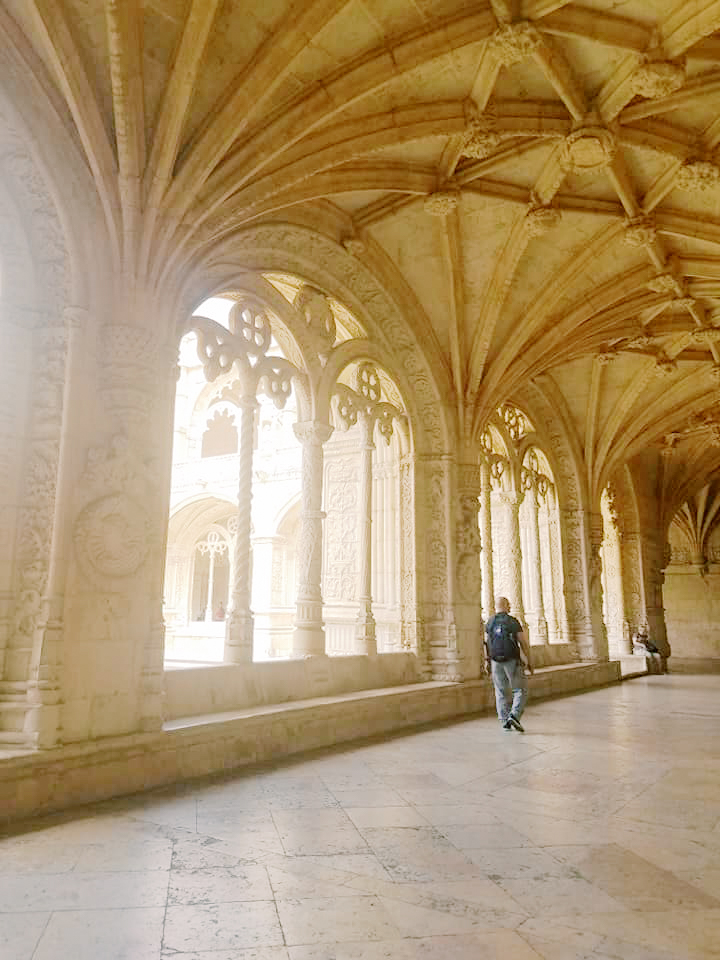
Other times I will look longingly out a window or into a courtyard and pretend I’m meeting my love. Sometimes I get incredibly extra and re-enact a sword fight. It’s really entertaining and brings any historical site to life. It’s also very, very weird and uncomfortable for people around you. Never do this when other people are around.

Not to throw shade at Europe’s churches, but they all seem to look the same after a while. I mean, I’ve yet to see a medieval church really jazz it up by, say, serving guests their own blood of Christ sangria, or showing off their holy karaoke den. This was not the case at Lisbon’s Jerónimos Monastery. Of course, I’m not implying the institution offered either of these initiatives. But it was certainly the most unique religious institution I’ve been to on the continent. In fact, I would even put it up against Segrada Família.
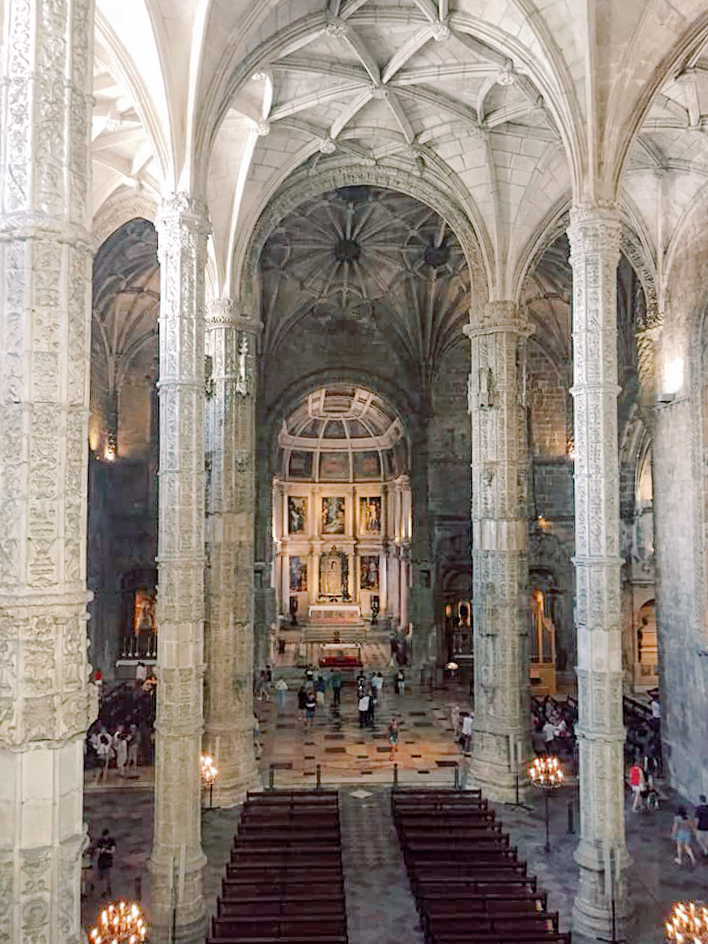
A Nod to Sea Life.
Many of Lisbon’s commemorative sites give a nod to their early explorers, and the monastery is no exception. Sailors and explorers used to pray for safe passage in the nearby chapel the night before their journeys. King Manuel built the monastery nearby to thank the early navigators of Portugal. The entire building is created in white limestone, which is reminiscent of the ropes Portugal’s sailors used to tie knots and things of that nature. Nautical and sea-faring themes are intricately carved into the limestone, which, as a material, even looks like nautical rope.

I am always looking for ways to connect with the past. Knowing that those objects were carved hundreds of years ago, have not been changed, and are now being admired by people decades later makes history palpable for me. One can’t help but wonder, who else looked admiringly at these objects?
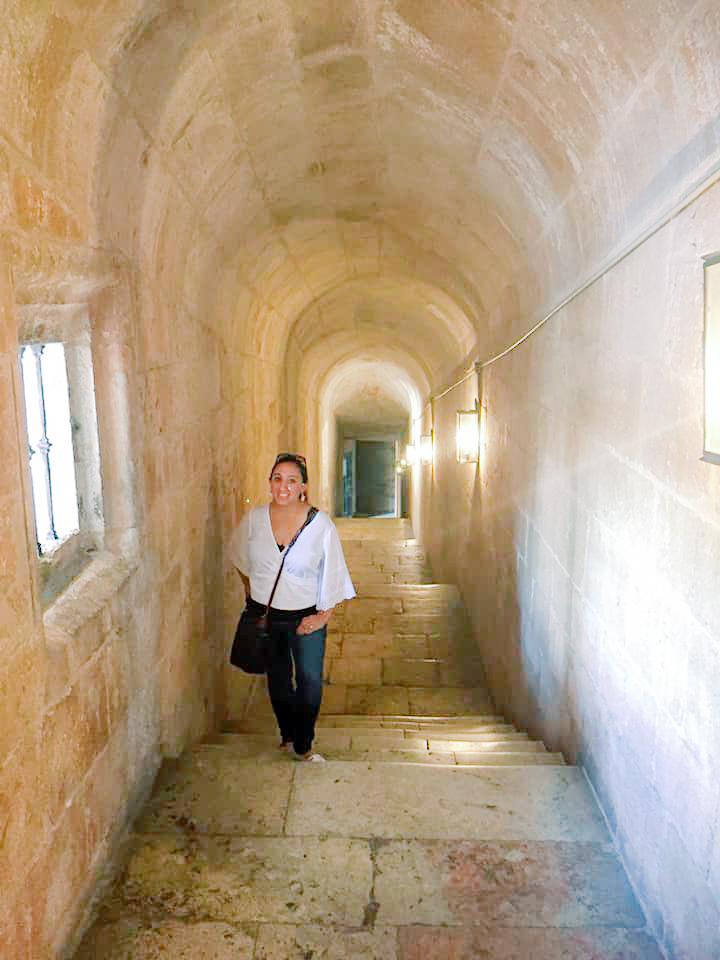
Lisbon Loves Its Explorers.
I wanted to know more about the nautical history of Portugal and its explorers, so the Padrão-Memória do Chão Salgado was not to be missed. Best of all, it’s free and entirely worth a visit. The monument was erected (*eggplant emoji*) to commemorate Portugal’s history of discovery and all of the brave explorers who navigated the seas and explored for Portugal. The memorial features figures such as Henry the Navigator and Vasco de Gama.

The bank where the monument is built often served as the final view of home for many sailors, but it later became their first view of home if and when they returned to Lisbon. The monument is absolutely striking, and photos do not do it justice. It demands one’s full attention and awe as it completely towers above all of its visitors.

The Padrão-Memória do Chão Salgado has motifs of all who explored, including missionaries, map-makers, and artists of the 15th and 16th centuries. Lisbon is one of those cities where the ghosts of the past walk among the bodies of the living. When the mist rolls in and you’re gaping at the memorial on the water, it is easy to expect the fog to clear and find yourself in a different century altogether. (Or maybe that’s just because I watch Outlander.)

The Elusive Lisbon Trams.
The trams of Lisbon were too scarce and too packed for me to want to ride one. However, this didn’t stop me from admiring them and taking pictures whenever I could. Lisbon is always celebrated for its historical mode of public transportation, but I was surprised by how elusive they actually were. The lines to hop onboard ran unfathomably long, which seemed to defeat the purpose. I could walk to a site and back by the time the line moved up even a foot.

Taking It All In.
I made a promise to myself not to rush around Lisbon like my ass was on fire. In the late afternoon, it was time to relax. And what’s a good maritime city without a place to enjoy cocktails and music as the sun begins to set? I was contented when we stumbled across a scene with drinks, lounge chairs, music, and tables abundant. Time moved slowly as I drank a kick-ass sangria—hell, time might have even stood still. The sound of waves crashing in the background as Arthur and I caught up during the ultimate date night were especially meditative.

The Best in Bar Hopping.
After our seaside sangria, we went in search of food in Barrio Alto. It was worth the nerve-rattling cab ride uphill, followed by walking straight uphill further. (OK, maybe not that last part.) We spent the night within a rich honeycomb of restaurants and bars scattered throughout the district.

Each small building hosted a unique, intimate, and captivating experience. As we strolled down the narrow, graffiti-lined passageways, a Portuguese grandmother yelled down from her balcony that I must try the place under her dwelling. She began blowing me kisses after expressing affection for her favorite neighborhood spot. It was truly one of those moments that people fawn about when recalling an authentic travel experience. However, we were in search of dinner and a show—a Fado show to be exact. Fado consists of soul-stirring, heart-crushing, melodic songs native to Portugal, mostly about lost love and tearful nostalgia.
With only a little digging, we found our place. My husband and I drank two pitchers of a very strong sangria, and I felt more than satisfied eating one of the most filling and delicious meals I’ve ever had: a giant plate of fresh fish and tons of potatoes. (Portuguese dishes tend to be very heavy, and best of luck finding veggies.)
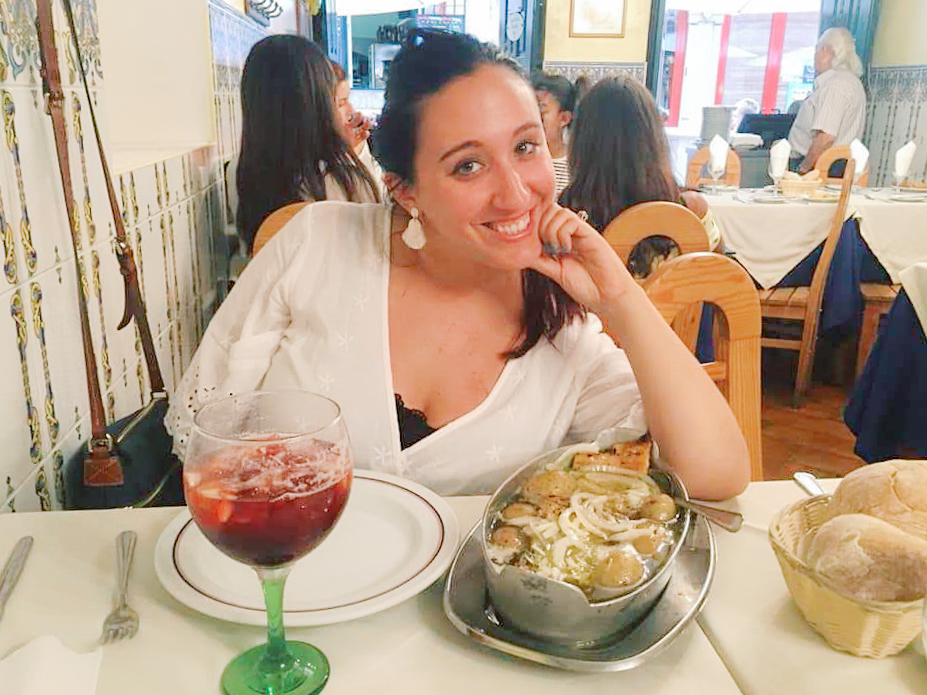
I was stuffed to the gills—no pun intended—but could not stop eating. One more potato, I told myself. One more piece of garlic-clad fish. Full of unfairly good food, powerful booze, and the happiness that discovering a new destination brings, I became misty-eyed as a Fado performance began. I had only seen Fado on my beloved Anthony Bourdain’s Parts Unknown, and the art form has haunted me ever since. The music reaches deep down into even the most stoic of hearts, squeezes, and does not let go until the song is over. An emotional woman of an indeterminate age appeared in a black shawl, with a somber down-turned smile.
Fado is one of the most powerful art forms I have ever experienced, and its impact lasts long after the performance is done. It is meant to convey a sense of “desperate longing,” which is unique as a musical genre, and this can definitely be felt by the listener.
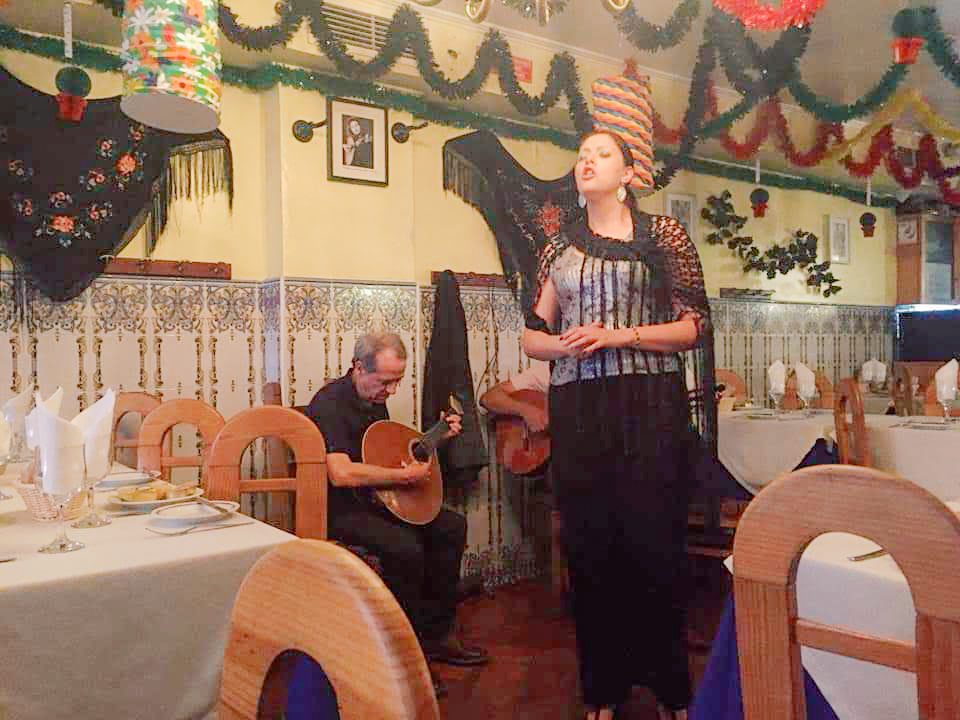
Lisbon, for all of its hills and long tram lines, was my most relaxing short trip to date. I took no issue with not knowing where my feet would take me throughout the evening. I felt more than content to wander the gritty streets and follow one surprise after another each time I turned a corner.
Lisbon is a smoldering city of graffiti-covered walls, warm colors, maritime views, and alcohol-infused pleasures. I’ll always look back fondly on our short time together. No matter what city I wind up in, I promise to give a smirk and head nod when I think of you and the memories that only we have shared. Xoxo.
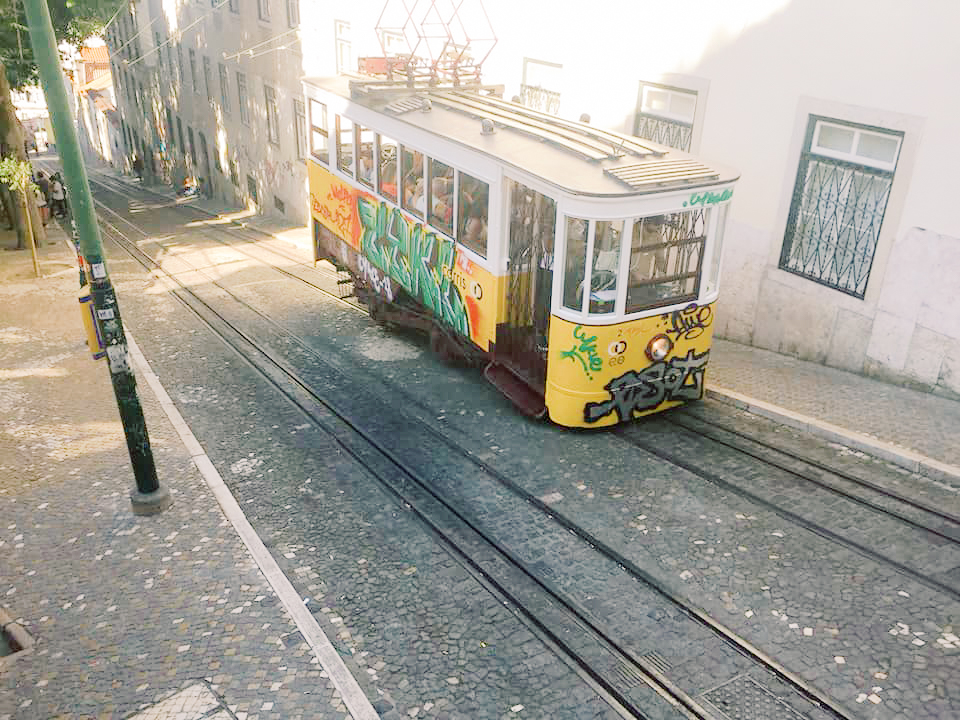


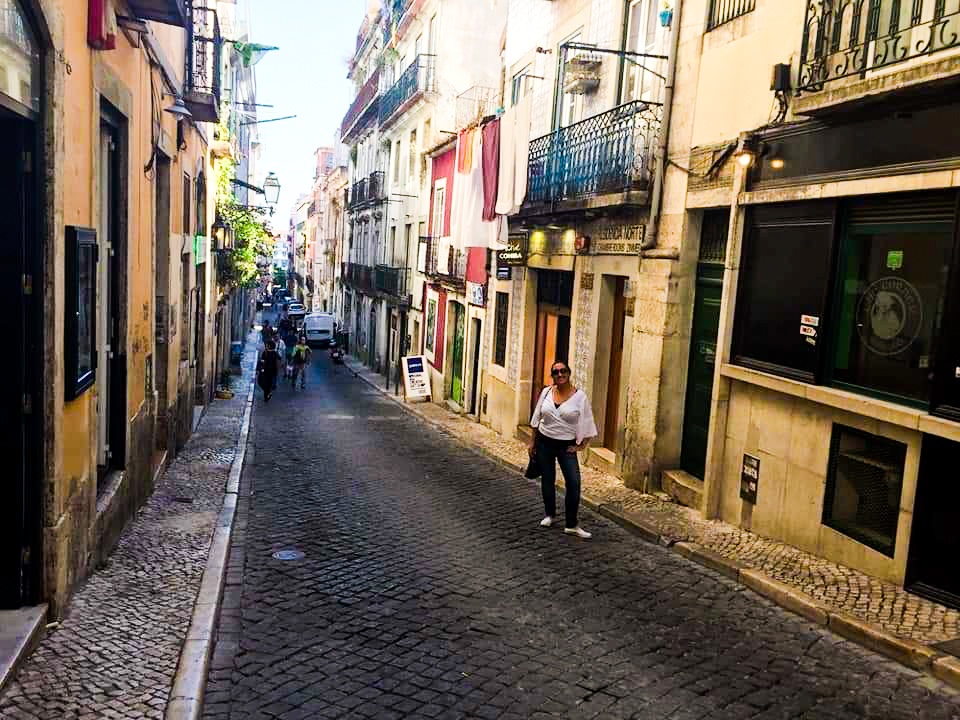



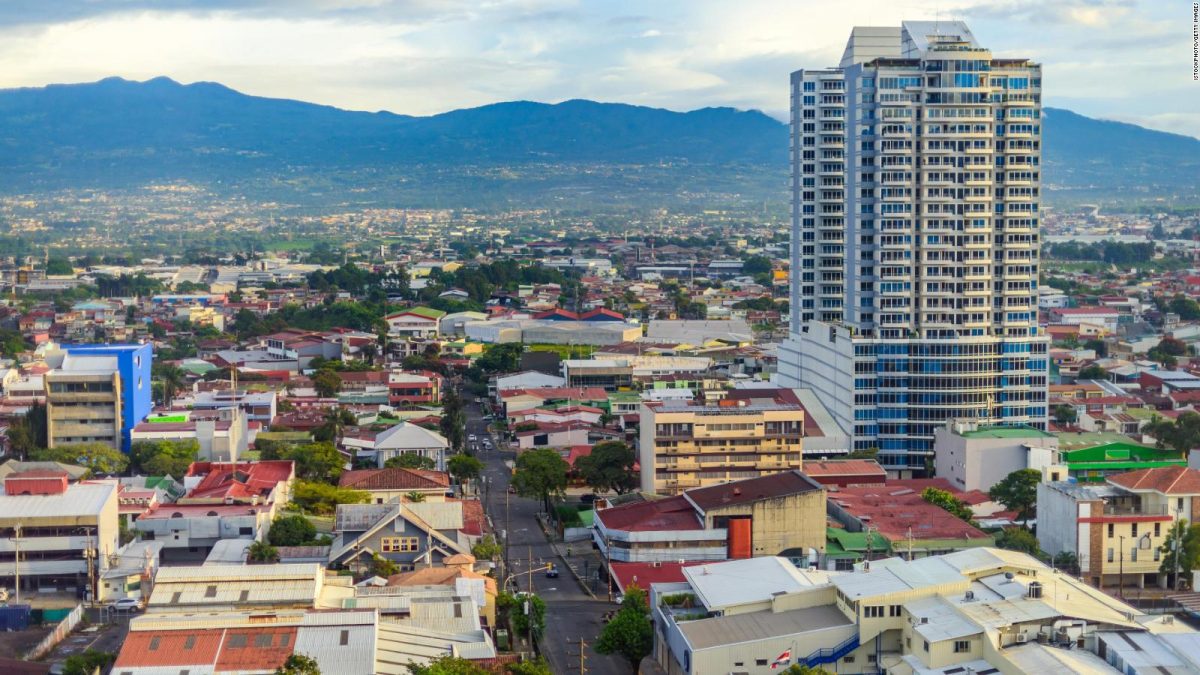
I love all the architectural designs on your photos, and, of course, the Portuguese egg tart!
ReplyLisbon is on our short list of places to go once we are able to travel again. It looks wonderful! The places and activities you\'ve mentioned in your post are all things we hope to experience when we are there!
ReplyYou had an amazing trip. Your post is great. I love Lisbon, it offers so fantastic architecture, food, and culture.
ReplyVery interested in everything Lisbon. We have decided to stay for 3 months in 2023! Thanks!!!
ReplyLisbon is a great city - sadly, suffering a bit from over-tourism. That\'s one of the reasons why I enjoyed my visit to Belém so much. Also, seeing Sao Jeronimo was one of the highlights - very impressive. Also, just around the corner is a great modern art museum. Ah, sweet memories from the times when we still were allowed to trace....
ReplyMy first layover was in Lisbon, and when I handed the gate agent my boarding pass. He looked up and I thought I was in trouble and he just goes “why aren’t you staying here longer?! Do you not like Portugal?!” Thankfully he’s laughed after because I didn’t even know what to say. Next time I hope my layover is a bit longer so I can enjoy Lisbon layovers like you did!!
Reply